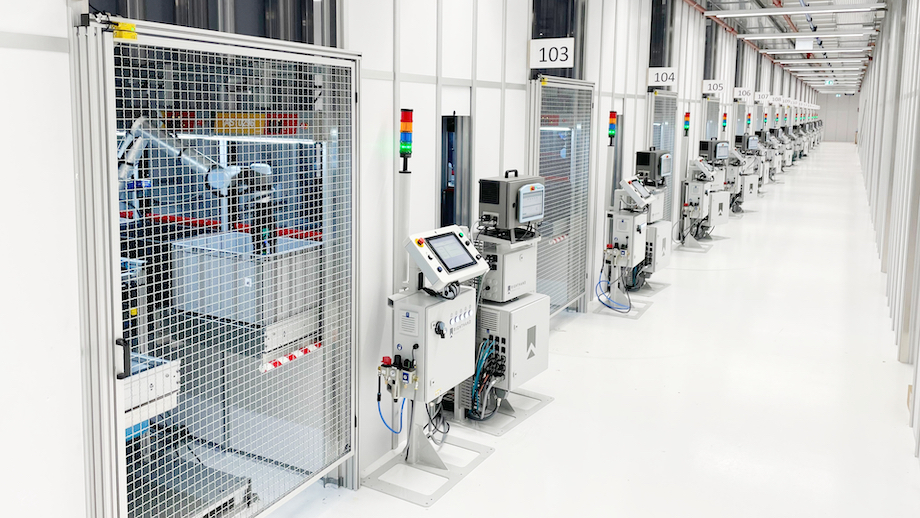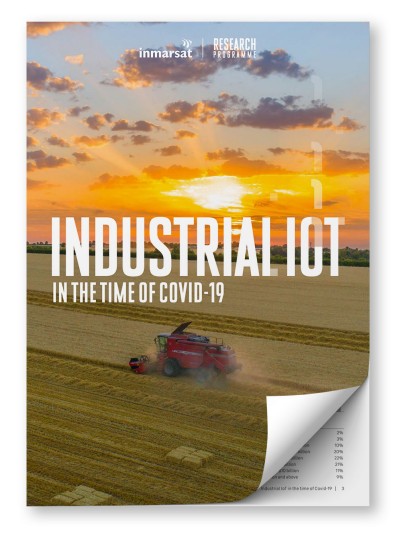Research by Inmarsat, a world leader in global, mobile satellite communications, reveals relatively few businesses derive maximum benefit from the IoT data that they gather.
Most of today’s businesses only share IoT data within their own organisations, with security and privacy concerns preventing them from disseminating it to organisations in their wider supply chains. Infrequent data collection and lacking an IoT data strategy leaves many businesses surveyed struggling to extract full value from their IoT data. A more strategic, ambitious and open approach to gathering and sharing non-sensitive data could unlock substantial benefits for business struggling to make the most of IoT projects.
Collecting and sharing the right data at the right time enables companies and their partners to take better, more proactive decisions across the value chain to optimise operations as soon as a problem occurs, or even anticipate and mitigate it before it happens. Such data driven insight can help businesses reduce waste, increase productivity, improve customer service and run more sustainable operations.
The research was based on the interviews of 450 global respondents across the agriculture, electrical utilities, mining, oil and gas, and transport and logistics sectors. According to the research, of those who worked in transport, as many as 82% of respondents admit their organisation does not use the data collected from IoT projects as effectively as it could.
This is despite high levels of IoT adoption overall. The most prevalent barriers are security and data privacy concerns, cited as a barrier by almost three in five (59%) of all respondents, followed by a lag between data collection and availability (41%) and the lack of an IoT data strategy (27%).
Accelerating IoT adoption over the course of the Covid-19 pandemic has highlighted the fact that many businesses’ data sharing strategies are not yet as advanced as they need to be. Currently, only 20% of all transport organisations make non-sensitive IoT data available to anyone in their organisation, and to their partners, to access and to use. Conversely, just over two in five (42%) limit the use of IoT data to certain departments involved in their IoT projects.
However, this is set to change, with a larger proportion of organisations (34%) shifting towards sharing data with their wider supply chain and far fewer (23%) planning on limiting IoT data to specific departments. This change is occurring as more businesses come to understand that the responsible and secure sharing of IoT data is a necessary step towards unlocking the maximum value of that data.
The research reveals that having a formal IoT data strategy is a vital step towards drawing the optimum benefits from the technology, ensuring data is produced, shared, and analysed between the right parties at the right time. Transport organisations with a formal IoT strategy are far more likely to gather data points in their IoT projects in real time (51% of respondents compared to only 16% amongst organisations without an IoT strategy).
There are also notable differences in how strategic businesses are in the usage of their IoT data based on the region they operate in and the size of their organisations. While only 9% of European businesses (excluding Russia) struggle to use IoT data effectively due to the lack of an IoT data strategy, this increases to 27% of organisations in Asia Pacific and 60% in Latin America. Likewise, while 18% of large organisations (3,001 – 5,000 employees) struggle with a lack of an IoT data strategy, 56% of smaller businesses (under 500 employees) cite this as a barrier to effective IoT data use.
Steven Tompkins, Director of Market Development at Inmarsat Enterprise, said: “Transport businesses lag other sectors surveyed in their use of IoT – being the least likely to have a formal IoT strategy – so there is still much to do to leverage IoT’s full potential in this sector. It is evident that a formal strategy around IoT data is imperative to ensuring that transport companies are effectively communicating data, not just internally, but also across their supply chains.
“Effectively communicating the wealth of available data is an integral part of any transport business, so a formal approach and strategy will need to be non-negotiable for the sector to extract full value from its IoT projects.”
Commenting on the findings, Mike Carter, President of Inmarsat Enterprise said: “While our latest research shows that the majority of today’s organisations are now gathering IoT data, there is still plenty more that businesses need to do to derive the maximum benefit from it. The ultimate measure of an IoT project’s success is how it improves the way a company and its partner eco-system operates. This is largely resultant on the type of data extracted and how it is shared and turned into practical and actionable business insights in a timely manner.
“It’s clear from our findings that many businesses still need to employ an IoT data strategy as part of their overall IoT strategy, to ensure their data gets to where it needs to go within the organisation, let alone to other parts of the supply chain. Four out of five businesses currently share the data created from their IoT projects only within their organisation, due to concerns around security or privacy, limiting their ability to extract real business value from this data.
“However, it is encouraging businesses intend to change this situation, as organisations become increasingly open to sharing non-sensitive IoT data with their partners, increasing productive supply chains.
“Without a coherent IoT data strategy in place, businesses will struggle to develop the culture of open and responsible data sharing and collaboration required to ensure their IoT projects are successful. Inmarsat’s Enterprise business is focused on providing IoT connectivity to business-critical applications and to remote locations, providing vital access to valuable data points across global supply chains.
“Our industry-leading ELERAnarrowband network enables organisations that grow, mine, extract, move, save, and inform to access, use and share IoT data anywhere, helping them to improve efficiencies, safety and sustainability.”





